I’d recommend that the next acquisition that some marketing cloud companies should make is a web design firm. Seriously, whatever the multiple — and I say this as a friend — it would be worth it. Acqui-hire, code red.
I was struck by this last week when I was methodically checking each of their websites, trying to discern the state of their respective ISV communities. It ended up being really hard to answer that question, even for some that I know are strategically focused on “platformization.” In many cases, I could only find a partial answer — or worse, conflicting answers. And the absence of continuity in interface, concepts, nomenclature, and messaging across pages was dizzying.
I’m not saying that every marketing cloud website is bad. A couple were quite good, and others were decent. But some seemed to have been designed by a collaboration between Franz Kafka and the Greek goddess Eris. Did Terry Gilliam start designing websites?
Now you might think this was a function of my particular quest for ISV ecosystems. You could argue that maybe they intentionally hide that in the basement because it’s not really important to their strategic position, despite what they may say in other contexts. Actually, that was the conclusion I was almost starting to draw.
But then I started asking other, more general questions. What are the different “modules” or product options within their cloud? What do they each actually do? How are they related to each other? Where choices overlap, is it an either/or decision, or do they work together? What is the pricing model — can I figure out if something’s even in my ballpark?
I didn’t have much more luck finding those answers either. For several of the major marketing cloud providers, I left more confused than when I arrived. How does any buyer figure this stuff out? I was experiencing a martech crisis of faith.
Now you might say, “Cut them some slack, Scott. The larger a company is, and the larger their portfolio of products is, the more confusing their website is bound to be.” It’s not their fault. It’s simply the Law of Large Websites: large websites eventually converge to incoherence.
However, the Law of Large Websites can be bent by good design. That doesn’t mean it’s easy. These marketing clouds are big — and some of the companies that own them are downright gigantic. Designing a truly remarkable customer experience for all the different kinds of buyers, at different stages in their journey, is no doubt an immensely hard challenge.
But if you’re marketing a marketing cloud, this seems like a moral imperative:
- The obvious: you’re in the business of selling digital customer experience software. The irony of having your own website deliver a poor experience is frightening.
- If you’re relying on salespeople to solve this through one-on-one conversations, recognize that it flies in the face of the research — some of which you’ve likely funded or promoted — stating that at least 2/3 of the buyer’s journey happens digitally before a prospect connects with a salesperson.
- Speaking of research, you’re also likely promoting the statistics showing that marketing is increasingly responsible for customer experience, especially across digital channels. If you’re trying to motivate your buyers to step up to that mission, lead by example.
- Part of your core value proposition is that a whole collection of digital marketing capabilities under the umbrella of a single marketing cloud is supposed to be easier. But if you can’t easily explain how everything fits together on your website — beyond a very high-level sketch of unified nirvana — the credibility of that pitch seems dubious.
I know, the website isn’t as cool (or as nicely compartmentalized) as social media programs or content marketing campaigns. At a large company, it is likely a negotiated compromise among many different and influential parties. Tackling it, in any significant way, won’t be just a design challenge — it will be a political one too.
But your website is the foundation on which your digital marketing empire is built. It is the one place where anyone who wants definitive answers about your company and products expects to be able to go and find them. And it’s an incredible opportunity to inspire them with what a terrific digital customer experience can be.
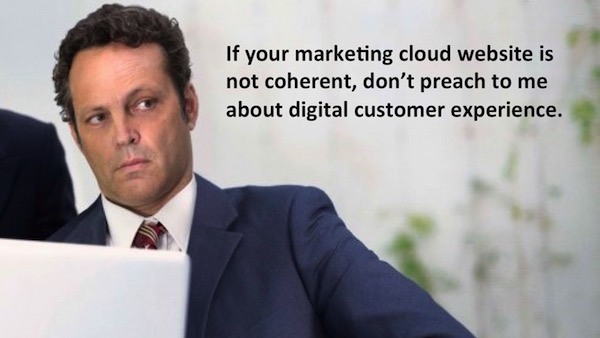
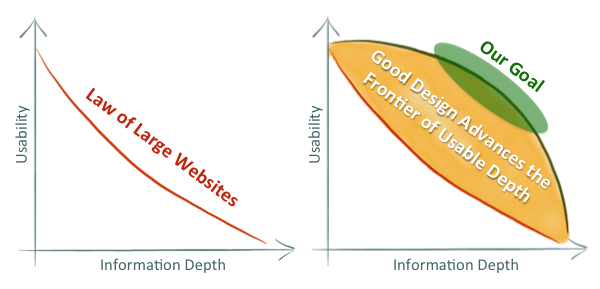
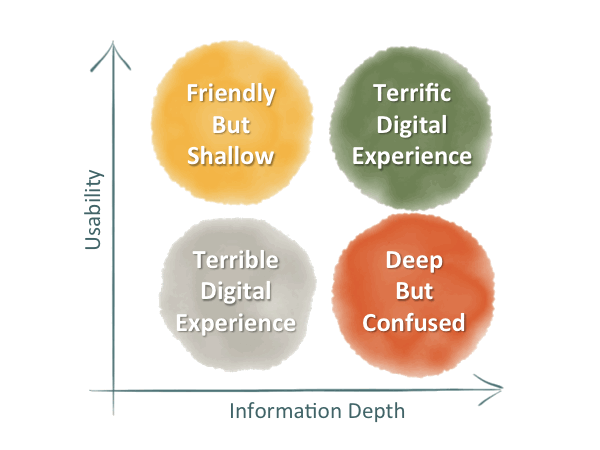
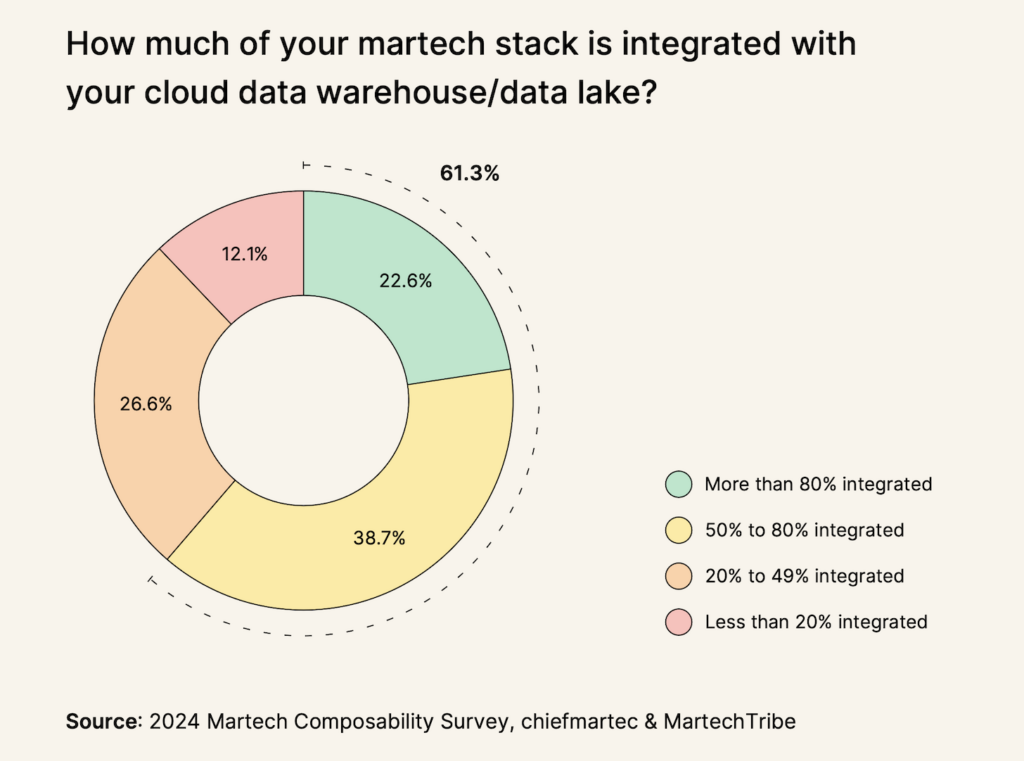
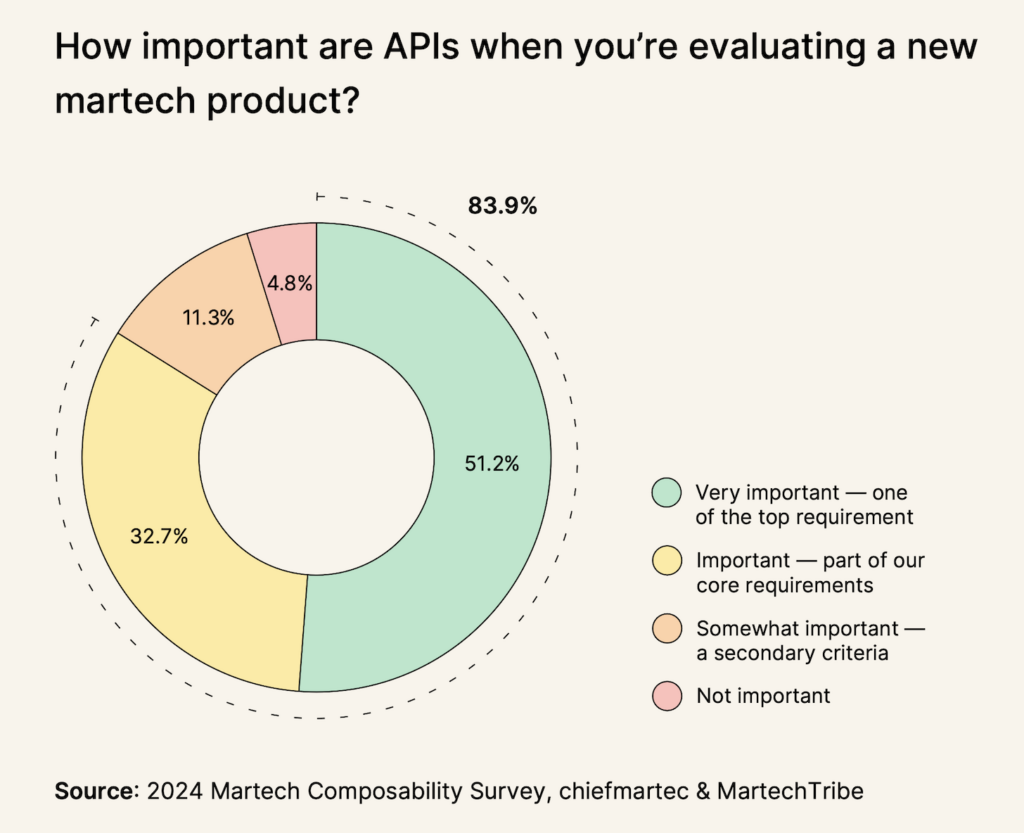
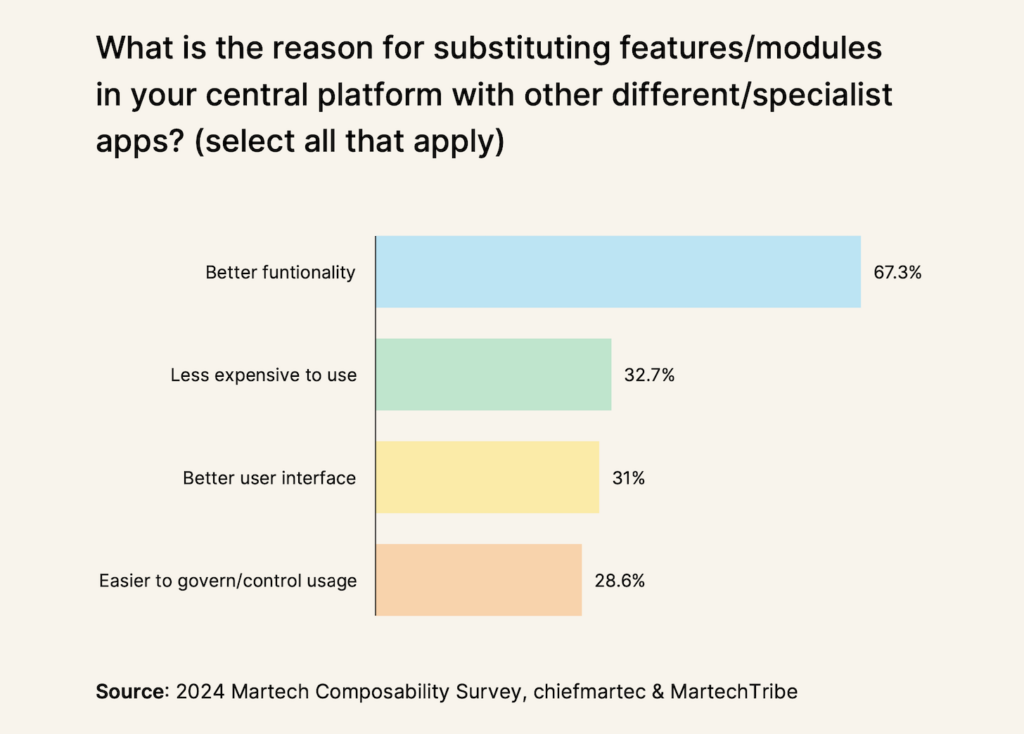
I agree, but I am a web designer.